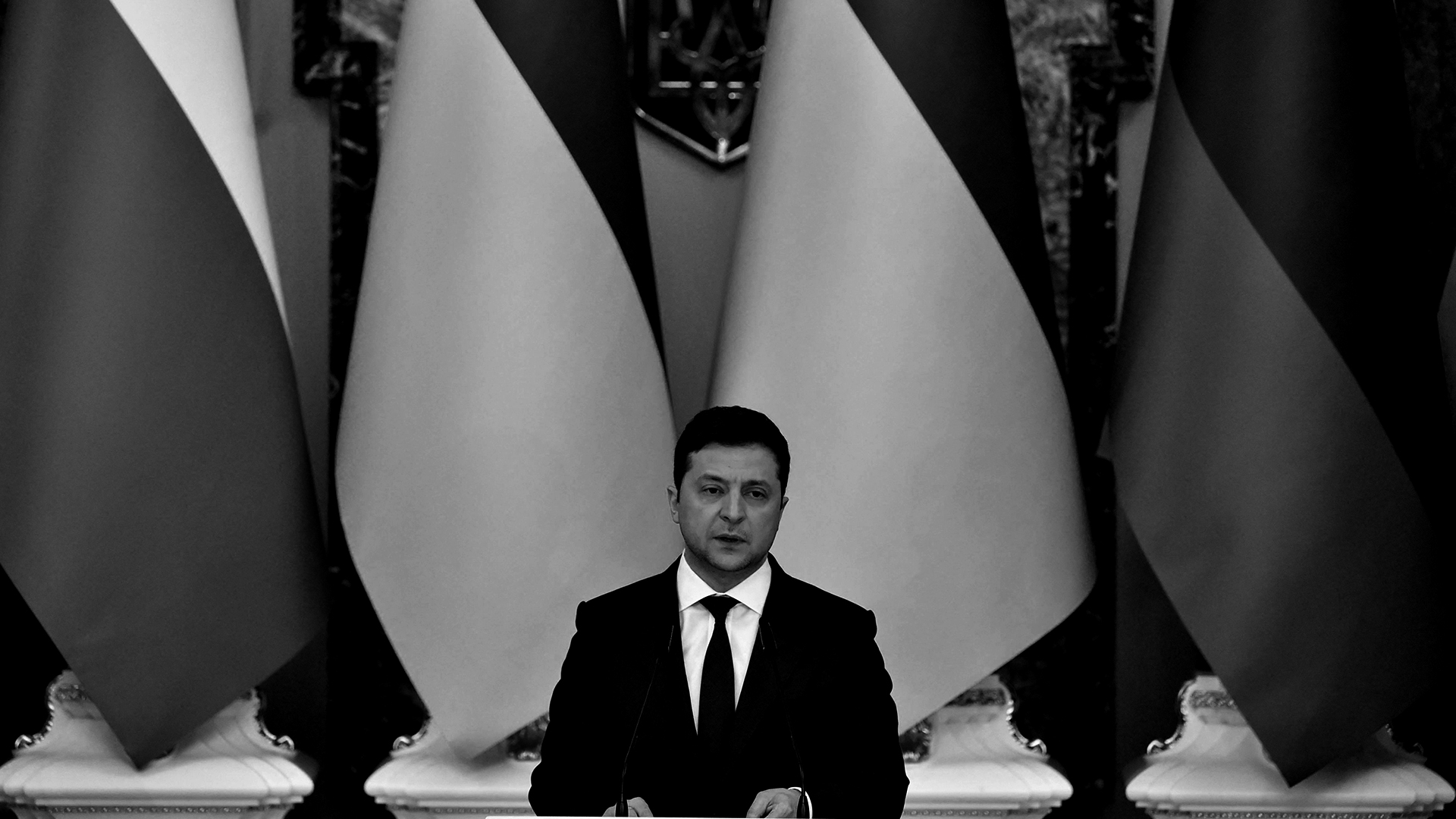Sarah Stewart Holland and Beth Silvers host Pantsuit Politics podcast, featured in the New York Times, the Atlantic, and named by Apple Podcasts as one of the Best Shows of 2021. They are also the authors of I Think You’re Wrong (But I’m Listening): A Guide to Grace-Filled Political Conversation (2019), which was featured on MSNBC’s Morning Joe, received starred trade reviews, and continues to be in demand with readers, book clubs, and libraries. Sarah and Beth speak frequently to universities, businesses, and civic organizations about improving political dialogue.
Both Sarah and Beth attended Transylvania University in Lexington, Kentucky, and then received their Juris Doctors (Sarah from American University and Beth from the University of Kentucky). Sarah began her career as a congressional staffer, campaign aide, and blogger and social media consultant. She lives in Paducah, Kentucky, where she served a term as a city commissioner and volunteers as a Court-Appointed Special Advocate for children.
Beth has practiced law and served as an human resources executive and business coach. Beth lives in Union, Kentucky, and serves on several local boards of directors. Sarah shares life with her spouse, Nicholas, and children Griffin, Amos, and Felix; Beth with her spouse, Chad, and children Jane and Ellen. Sarah’s dog, Cookie, and Beth’s dog, Lucy, are beloved (and involuntary) contributors to their work.
Sarah, Beth and Stuart have an inspiring conversation regarding politics, today’s political climate, and helping the next generation of leaders be leaders worth following. This is going to be a great listen!

On the evening of February 25, two days into the Russian invasion of his country, Ukrainian President Volodymyr Zelensky stood beside his senior staff in a capital under fire, and recorded a simple video. His words, translated, are direct, and they rocketed around the globe:
Good evening to you all. The head of government is here. The head of the president’s office is here. Prime Minister Shmyhal is here. Adviser Podoliak is here. The president is here. Our soldiers are here. Our citizens are here. We are all defending our independence—our country—and it will stay that way. Glory to the men and women defending us. Glory to Ukraine. Glory to the heroes.
Since that message Zelensky has been back in the streets of Kyiv, refuting rumors that he’s fled. He has flatly refused a reported American offer of evacuation, declaring….
“The fight is here. I need ammunition, not a ride.”
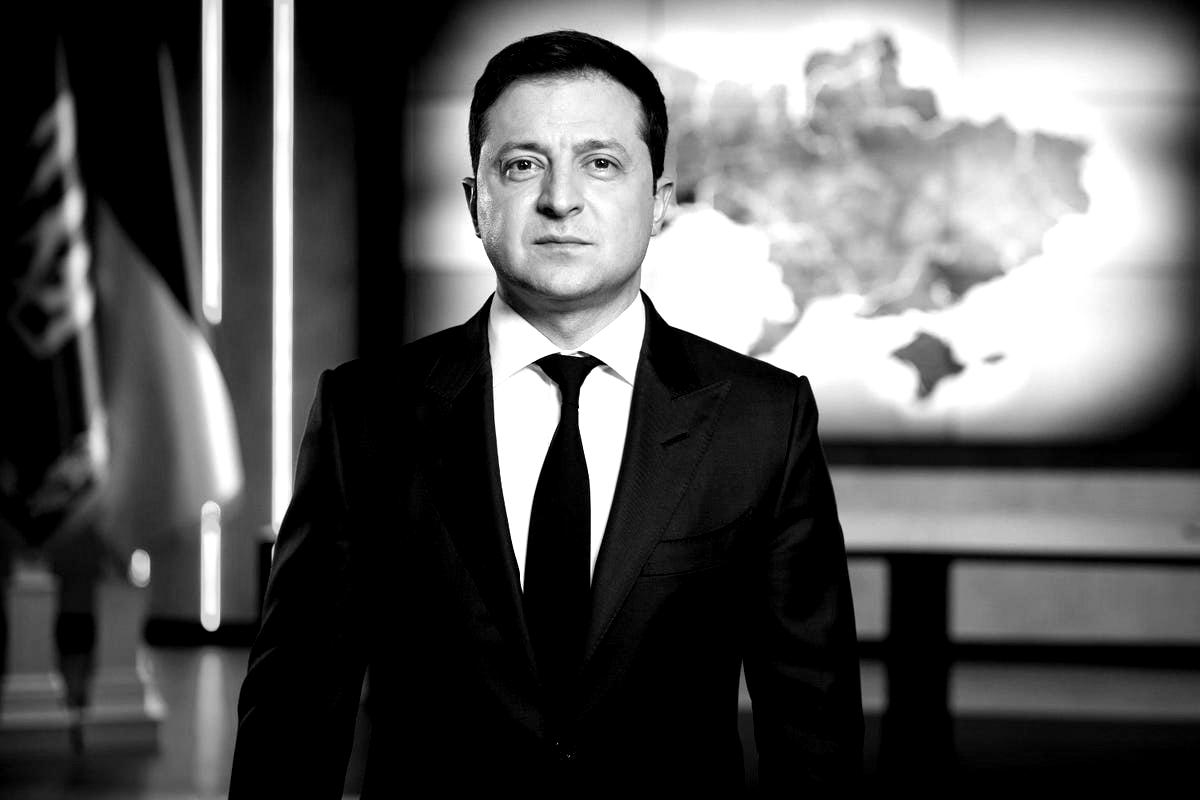
It’s worth repeating, this is a capital under active attack. A 40 mile line of Russian tanks and troops are reported to be on the city’s outskirts, it has suffered repeated air and missile strikes, and there’s been fighting reported in the city’s streets. Moreover, there is every reason to believe that killing or capturing Zelensky is a key Russian war aim.
Yet he stays.
It’s sometimes hard to gauge in real time whether any given moment, no matter how dramatic, is truly culturally or historically significant. Not every viral video matters, and we’re quick to create (and forget) both heroes and villains.
But there is something about Zelensky’s stand that is different. There’s something about it that’s penetrating far beyond his country’s borders and touching the hearts of Americans across the political spectrum. It means something real, something we should remember.
Part of the importance rests in Zelensky’s identity. Nothing about his past suggests that he was ready to potentially become Ukraine’s Churchill. Indeed, in the run-up to the Russian invasion itself, there were a lot of reasons to wonder whether he was, in the words of a New York Times essay by a Ukrainian journalist, “seriously in over his head.”
A number of knowledgeable people have questioned not only Zelensky’s presidency (Has he done enough to root out corruption? Has he surrounded himself with friends and cronies?) but also his preparation for the Russian invasion. Did he downplay the threat of Russian attack for too long? Did he mobilize too late?
The best argument for Zelensky was that he was an ordinary man caught in extraordinary times. Because evil often leaves virtue with few good choices, he had no clear path. Mobilize too soon, and you can cripple your economy and perhaps provide pretext for a Russian attack. Mobilize too late, and you’ve granted the invader a military advantage.
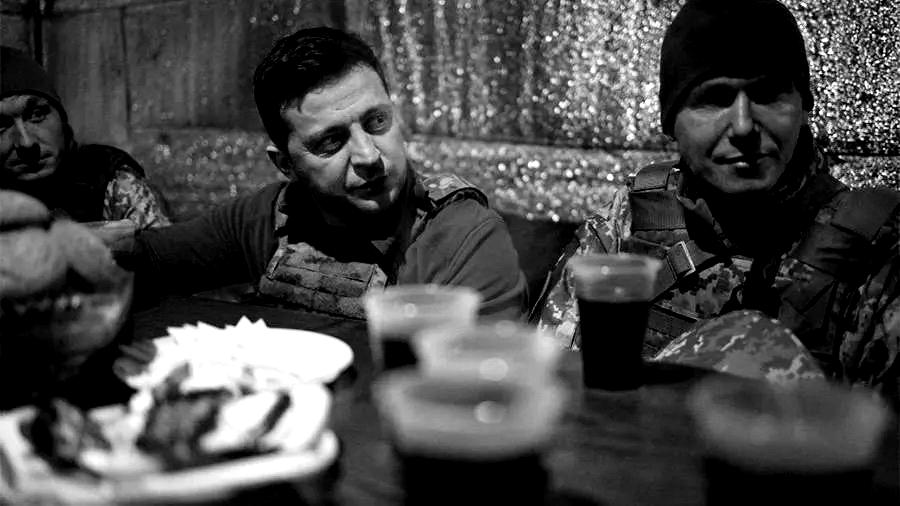
Moreover, when exactly do you tell your people that the Russians are coming? After all, there were disagreements about the likelihood and extent of the Russian attack right until the moment it launched.
But extraordinary times are also when ordinary men can become heroes. We’ve become accustomed to dealing with brand-managed politicians—men and women who sometimes act more like messaging machines than leaders or legislators. We’re just as accustomed to moral cowardice. Politicians fold to Twitter mobs. They say one thing in green rooms and another thing on television because they’re terrified of the activist base.
It’s not that we’re even experiencing a political class full of ordinary people in extraordinary times, but rather too often it seems as if they’re small people, who shrink even smaller the bigger the moment. There are exceptions here in the United States, but they’re exceptions. There is a reason why public trust collapses. There is a reason why angry cynicism grips our land.
In these circumstances it is breathtaking to witness actual courage. It’s even more breathtaking when that courage is both moral and physical. He’s not just speaking against evil, he’s quite literally standing against evil–when evil seems to possess all the power, and virtue feels so weak.
And this reminds us of something important about leadership. It’s one thing to say, “I will lead you.” It’s another thing entirely to say, “I am with you,” and to demonstrate it by laying your own life on the line.
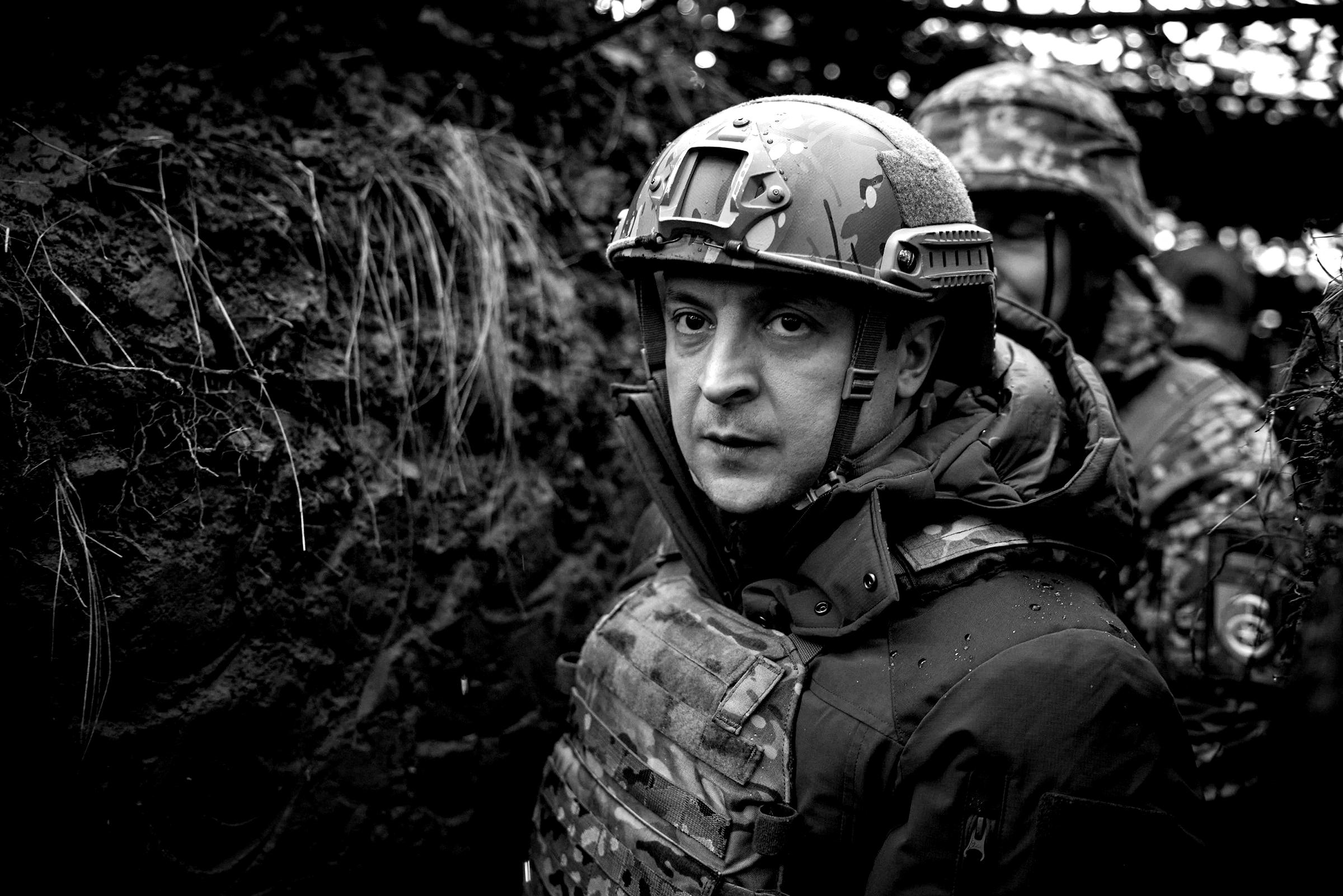
I truly hesitate to use this comparison, because the story is not yet fully written and the stakes are not (yet) quite so high, but there is a reason why I mentioned Winston Churchill. Before 1940—and before the Battle of Britain—it was hardly inevitable that he’d be the leader the moment required.
Yes, Churchill was prescient about the threat from Adolf Hitler, but he had a checkered past. He made mistakes that could have ended his career. He bears responsibility for the bloody British defeat at Gallipoli, one of the worst military mistakes of World War I.
He could be spectacularly wrong. When powerful evil confronted him with tough strategic or tactical choices, he sometimes chose poorly. He often chose poorly.
But Churchill did get the most important thing right—and it’s the same thing that Zelensky gets right today. When evil does come to your national door, you stand against it. Not just morally, but physically as well. More than once, Churchill stood outside during the Blitz. He walked the streets of London after raids. Was it foolish for the prime minister to expose himself to German bombs? Would his loss have been more than Britain could bear?
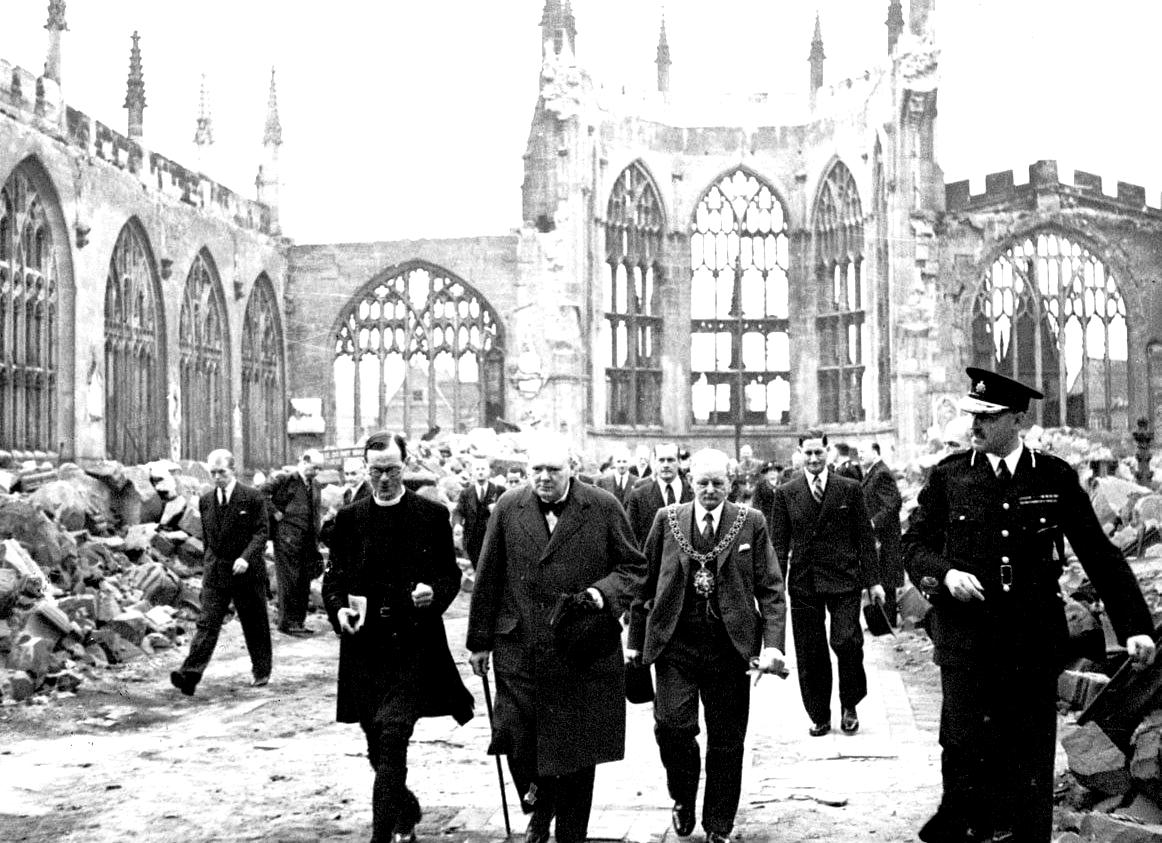
I’m reminded of a moment in the Battle of Princeton, when George Washington rode within 30 yards of the British line. One of his aides, John Fitzgerald, reportedly “pulled his hat over his eyes,” afraid that he’d witness Washington’s death. Could our young nation have survived Washington’s loss?
Perhaps the better question is whether nations can survive without such courage.
This is not a movie. No happy ending is guaranteed. A happy ending isn’t even likely. Zelensky’s future could be grim indeed. He might be assassinated or captured between the time when I go to sleep Saturday night and this newsletter automatically sends at 6:30 a.m. Sunday morning. He might eventually have to retreat from the capital to continue the government. He may have to make peace to end his nation’s suffering.
Indeed, for all the optimism surrounding early Ukrainian resistance, a nation that is winning a war is not arming middle-aged women and preparing them to fight:
When he was a young man, Winston Churchill reportedly memorized Thomas Babington Macaulay’s Lays of Ancient Rome. Think of these words as you remember his stand and the stand of Volodymyr Zelensky and the men and women of Ukraine:
Then out spake brave Horatius,
The Captain of the Gate:
“To every man upon this earth
Death cometh soon or late.
And how can man die better
Than facing fearful odds,
For the ashes of his fathers,
And the temples of his gods.
The future is opaque. The fog of war has descended over the battlefield. Much is unknown, but this much is clear: An ordinary man has answered the call of an extraordinary time, and he has sparked hope in his own people and in a cynical and weary west.
Excerpt taken from “When the Man Meets the Moment: Why Zelensky Matters, in Ukraine and the World.”

Acclaimed author James Fenimore Cooper once quipped that “History, like love, is so apt to surround her heroes with an atmosphere of imaginary brightness.” It’s true. The older we get, the better we were. The more time passes, the larger the conquest, the more significant the victory. It is the nature of history. But what now stands as epic and historical was frightening and intimidating in real time. Heroes in their prime weren’t heroes. They were common, ordinary people with a resolve to do something hard… because that something hard was the right thing to do.
I often find myself in awe of the courage of those before us. I am a sucker for any and every book, story or movie that depicts uncommon courage in harrowing circumstances. Probably explains why my favorite movies are epic stories like Gladiator, Braveheart, 300, Saving Private Ryan. These are the stories that kickstart my heart, that move me to action.
The afore mentioned 300 movie is a story that has intrigued me from the very first time I heard snippets of its details. Years ago, in the middle of a brutal workout, my friend Rick mentioned to me that I should read a book entitled The Gates of Fire. It was novel depicting the historical account of the Battle of Thermopylae, where three hundred of Sparta’s finest warriors, led by their King Leonidas, held back thousands of the invading military might of the Persian empire and valiantly gave their lives in the selfless service of democracy and freedom. I was riveted the moment I picked up the book. The movie was simply icing on the cake. And the courage and honor birthed and nurtured within the Spartan culture inspires me to this day.
Spartan warriors really loved their shields. Along with being a weapon and symbol of strength, shields were more often than not family treasures. They were passed down from father to son, and it wasn’t uncommon for a soldier to beat an enemy to death with the same shield his grandfather had used.
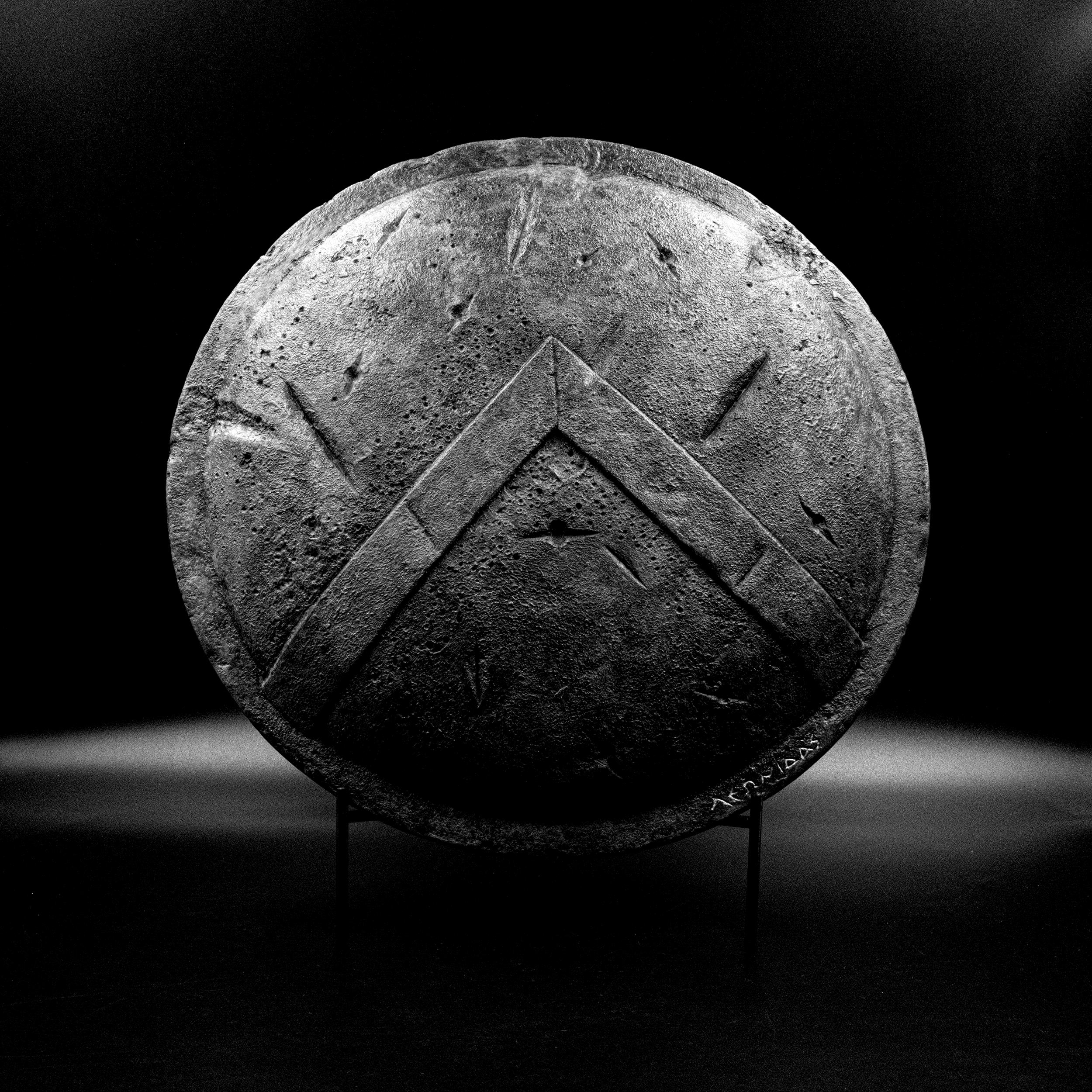
It also wasn’t uncommon for Spartans to decorate their shield. This served two purposes: it helped the individual Spartan be identified on the battlefield, and it looked intimidatingly dope.
I recently came across one particularly amusing story concerning the shield of a Spartan. History (or legend) relays that an unnamed Spartan soldier spent many hours painting a life-sized fly onto his shield. This annoyed his peers, who accused him of cowardice (because his enemies wouldn’t be able to tell who he was) and of complete idiocy to boot.
The young Spartan then stunned his peers by explaining that the fly would be the size of a giant when he smashed it into his enemies’ face. The Spartan warrior is said to have declared “It will be the size of a lion when i bore down on my enemies.”
Many different versions of the quote exist, but the overall gist of what the Spartan was trying to say is clear. “I’m going face to face with these fools… and I will shield-punch these guys so hard, my future family will get paid royalties from the Captain America movie franchise.”
“It will be the size of a lion when i bore down on my enemies.” I stood up on my chair after reading this the first time screaming LET’S GOOOOO!
It was this kind of mentality that fueled 300 warriors to give their lives in a narrow Greek mountain pass, in the face of insurmountable odds, for the sake of freedom. Today a simple engraved stone marks their burial ground. And in their prime, they didn’t see themselves as heroes. They certainly didn’t realize just how far their courage would stretch.
Yet their courage stretches to you even as you read these words…
How, you may ask?
Historians believe that the Battle of Thermopylae was the birthplace of democracy. It is cited as the first time a people group withstood dictatorship and tyranny. Thousands of years later, in a small room in Philadelphia, Pennsylvania, fifty-six men would sign what is now known as the Declaration of Independence, declaring a new nation’s independence from the tyrannical rule of Great Britain. Two of our founding fathers, Thomas Jefferson and Benjamin Franklin, would cite Thermopylae as a model for thirteen colonies standing up to King George the bully.
Interesting that two hundred plus years later, you read these words while living in a free country. Every year, on July 4th, you eat burgers, shoot fireworks, and celebrate the courage of our founding fathers. Their courage has stretched to you…
And I would add the courage of 300 Spartans as well.
C.S. Lewis once stated, “Courage is not simply one of the virtues, but the form of every virtue at the testing point.” Yours is a generation who grow fearful, who bow out at that testing point. In matters of faith, family, relationships, choices, courage gives way to mediocrity, to hesitancy, to compromise. But what would your life look like if your heart were bolstered by courage? Since Jesus raised Himself from death and conquered sin, doesn’t it make sense that He intended His followers to live a life of unquestionable courage? What happens when those who should have the most courage whimper into the shadows?
The Scriptures have much to say about being brave. David encouraged readers in Psalm 31:24 to “Be strong and take heart, all you who hope in the LORD.” The phrase take heart translates have courage in Hebrew. And David qualifies who should be strong and full of courage – people who have placed their hope in God. So here is what I want to ask you: In what area of your life do you need to be brave?
One day someone may cite a decision you made in the prime of your life, a decision that you never considered within the realm of heroism. A choice you made that was hard at the time but the right thing to do…
And you have no idea how far your courage in that moment will stretch.
_______________
Journal your thoughts so we can dive into this idea in the Circle…


